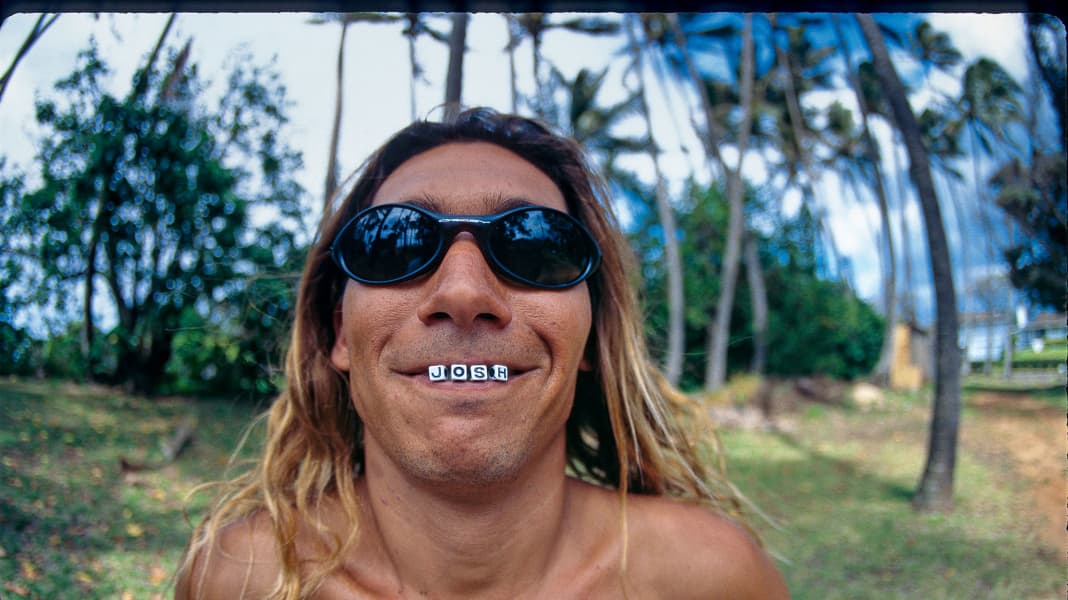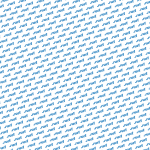Josh Stone lives near the village of Haliimaile (pronounced Heilimeili) on the northern flank of the Haleakala volcano. From up here he can see the entire North
shore of Maui and can be in Hookipa in 20 minutes. His house consists of lots of glass and is surrounded by a huge plot of land. Clean lines, fine woods, a pool table in the living room, an infinity pool on the large sun deck - the beach boy of old has built himself a luxury villa. Although Josh turns 50 this year, he still moves like a young man and still has the mischievous grin he once had. The grey strands in his short hairstyle look fake - as if Josh has been made up to look old...
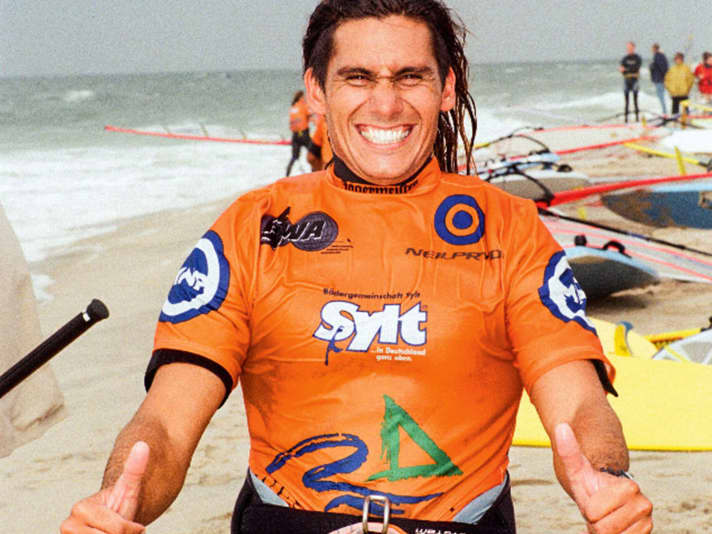
How do you explain the fact that you were so popular in Germany?
I believe that I symbolised the Hawaiian dream for the Germans. A Hawaiian sunny boy from Maui with long hair and a big heart. The Germans don't like bullshit. They can tell immediately whether something is real or not. They realised that I was serious. And that's how it was: I loved my German fans.
When you think back on your career, is there one moment that stands out?
Yes, the competition in Fiji in 1997 was the best ever. Huge waves like something out of a picture book. Naish, Scott Carvill, Polakow and I were in the deciding heat. At the time, they were the best "wind from the left" windsurfers in the world. It was the final with blatant down-the-line wavesailing. That's my favourite thing. It was incredible and is etched in my memory forever. It was the highlight of my career.
You were one of the superstars of the windsurfing scene. What made you decide to end your career back then?
I had started to help young talents. That was very important to me and also the reason why we created the freestyle discipline. Freestyle was much more accessible for most windsurfers. Freestyle went everywhere, whereas you had to fly all over the world for waves, you could train freestyle on the lake on your doorstep.

But you didn't have to end your own career because of that.
That's true, but the development happened so quickly that I was caught off guard myself. Suddenly, the sponsored talents such as Ricardo Campello became so overpowering that I had no chance of winning another title myself. But winning is the prerequisite for me as a professional athlete and how I see myself. Competitive sport only makes sense to me if I can win.
Rumour has it that Red Bull offered you 60,000 dollars for another year on the tour. Yet you quit - that seems crazy!
I don't want to comment on the figures. But I didn't want to delay the end artificially. Even money couldn't change that. After battling Ricardo Campello for two years and the new kids following close behind, I realised that I no longer had a chance. I simply couldn't keep up with the ever faster spinning carousel of tricks.
And you already had two championship titles in your pocket in 1999 and 2000.
Exactly. The pressure was off. At the same time, my daughter Savannah was born. She hated flying. Quite unlike my son Harley, who coped well with the eternal trips to Europe. He was a fantastic traveller. By the time he was four years old, he had already travelled to 32 countries. My daughter was the opposite. She turned every journey into a horror trip.
Have you taken your family on the PWA tour?
Yes, my wife Amy and my son were always there. That was important for me. To be successful, I had to have my family with me. Because unfortunately I'm a bit crazy - I only do stupid things on my own. But when my daughter came on the first trip to Germany, she cried and screamed the whole flight. I just lost it - and so did the other travellers. At that point, I was travelling to Europe at least eight times a year. That's when my wife and I realised that this would never work in the future. Ironically, my daughter is now a professional surfer herself and travels all over the world. Funny, isn't it?
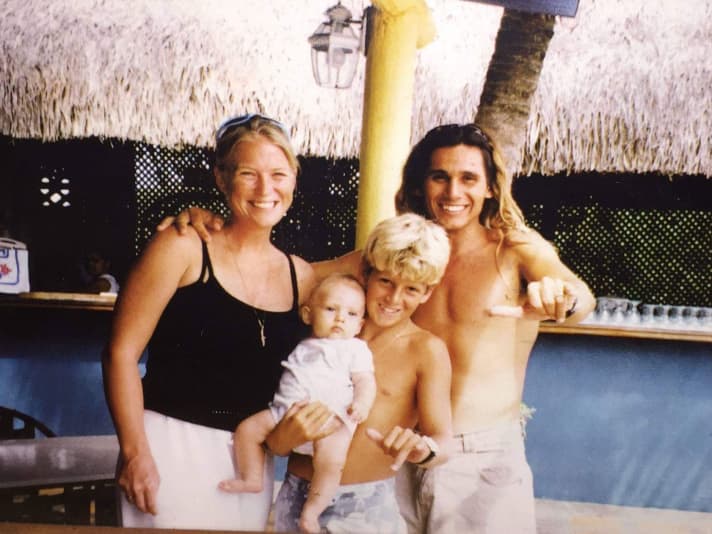
So you stopped at the peak. Do you miss the attention of the fans and the limelight?
As a young man, I loved the attention. The encouragement and energy of the fans fuelled me - even more - intoxicated me! No matter where I went, people went crazy and loved me. How can you not love that? But over time, even that became exhausting.
In contrast to many other athletes, such as Björn Dunkerbeck, the role of the sunny boy and nice guy seemed to you"Josh Stone" to fall easily.
That wasn't a role, that's who I am. It's part of my personality. I thought it was great to be around people, I didn't have to play anything. It was authentic. Because I always had something to prove to myself and needed external validation. It was only towards the end of my career that I lost this sincerity somewhat.
Was it really that easy for you - why?
I think that has to do with my background. The aloha spirit is in my blood. I like people. My motto: everyone is the same. And I accept and respect everyone as long as they don't take the piss out of me. But after 15 years on tour, it got tiring at some point. And since promotion was everything for me, the maths no longer worked out. But it wasn't the deciding factor in ending my career. It was when I realised that I could no longer win. And that was despite the fact that none of my sponsors were paying me for competition results, but rather as a brand ambassador. Except maybe Martin Brandner (former JP brand manager) - he wanted to see competition results. I find a fading athlete who desperately wants to hold on to his career miserable - I didn't want to be one of those.
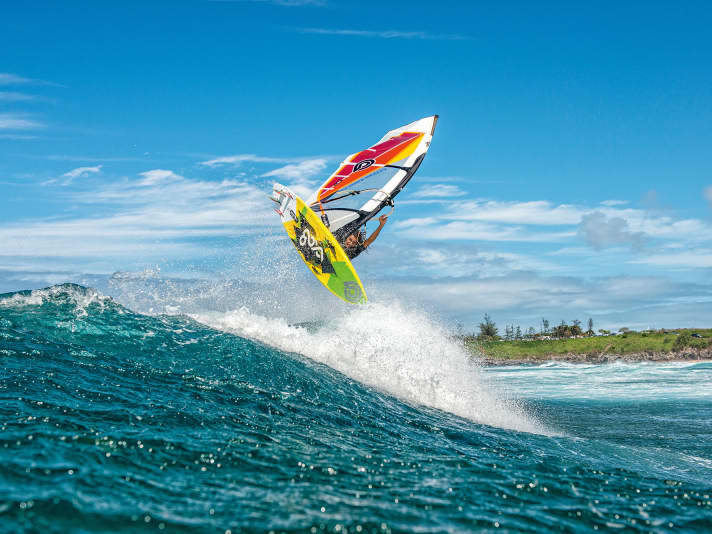
Professional surfer is a dream job. What did you particularly like about it?
My fans have played a crucial role for me. Being on stage, feeling the energy - that gave me enormous satisfaction. Another factor that drove me: progression. I always wanted to get better. If you want to be a champion, you have to keep learning and developing. Today, however, nothing new happens to me in windsurfing, everything is repetitive. That's a shame. So when I go out in Hookipa today and surf with guys like Marcilio Browne, Robby Swift, Ricardo Campello, Levi Siver, I'm usually frustrated. Because those guys can do everything and everything much better. Brawzinho pushes off over a measly wave and jumps a double forward with a 5.5 metre sail. Or he combines a goiter with a taka on a wave. That's crazy.
And what are you doing today? Which move stoked Josh Stone?
After a million front loops, a million push loops and a million back loops, it really does become a bit bland and interchangeable. There are no more happiness hormones bubbling away. But a powerful cutback never gets boring. It still pokes me today.
So you no longer do forward loops and push loops?
Yes, I loop all the time. I can't resist that. But I only go out for an hour, and only when the conditions are good. I have to be in the mood, if not, I'd rather do something else.
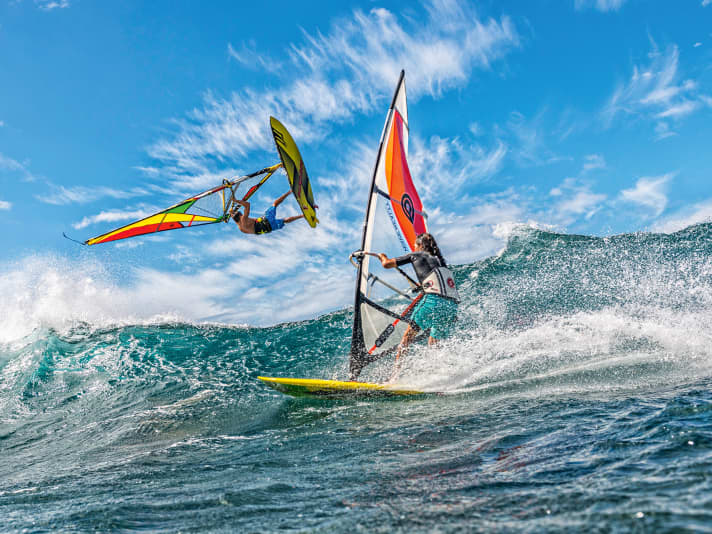
Can you feel the age?
"If you gonna play, you have to pay" - I've had a few operations over the years. Windsurfing is a tough sport and I've taken a lot of knocks.
What hurts you?
It's not the pain that gets to me. I can bear pain. It's numbness that wears me down. When nerves pinch and your arm, hand or leg suddenly goes numb - it's hard to bear. By jumping, I wore out a vertebra in my neck so much that it pinched a nerve every now and then. As a result, I couldn't feel my arm for a year. I could barely hold the boom with it and I couldn't paddle out when surfing, especially as I had to overstretch my neck on the wave rider - it was hell for my arm. My quality of life plummeted as a result.
So injuries are what you hate about life as a professional surfer?
Injuries are bad, but the wait for wind wore me down even more. That was brutal. Imagine that: You've been training for a competition for a month, you've fine-tuned your equipment - and then the competition is cancelled because there's no wind. That often drove me out of my mind. All that time! And the money my sponsors spent to provide me with my prototype equipment - unbelievable! Back then we had very strange wind limits in the World Cup. Sometimes there were perfect conditions and they cancelled the event, upsetting 20,000 fans and us athletes. Today it's different - events are rarely cancelled.
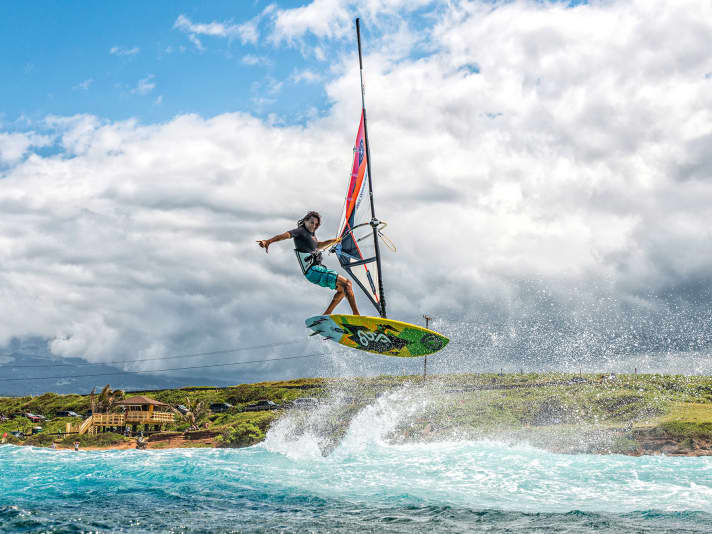
Wave, freestyle, you've surfed in Jaws and in the most beautiful places in the world under ideal conditions, you've been towed into huge waves on jet skis - have you experienced it all, had it all?
Yes, I had everything. And I became World Champion - that was important and means a lot to me. Without the titles, I would have missed something in my career. What's more, I would look back on my career as a professional athlete with the feeling that I had failed.
Is there anything that is still on the"Josh Stone Bucket List" stands. Something else you want to try?
Yes, Foilen. It looks so beautiful. My friend Keith Teboul always tells me how cool it is and how much I would like it. In short: I have to and want to learn it soon. But I've realised that I'm getting a bit lazy in my old age. There's also so much: I love hiking. I love snowboarding. Surfing, of course. Sometimes I sit here, look out at the sea and can't make up my mind.
Some ex-professional surfers have lost sight of windsurfing. Not you. What's your secret?
I was born in Hawaii. The sea has always been a part of my life. This was supported by my father - he was a surfer on the North Shore on Oahu.
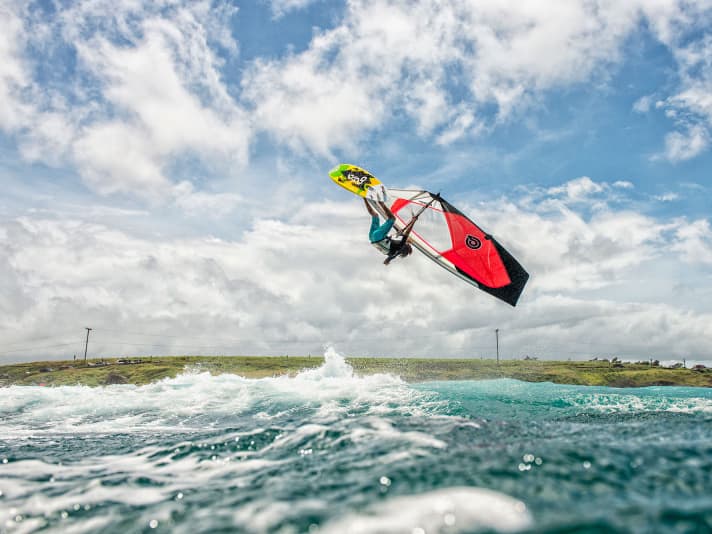
Did your father have a big influence on you?
A huge influence.
Did he put you under pressure too?
My father is a very special guy. He certainly wasn't the best father. He's notorious in Hawaii. He did a lot of good things, but he also messed up a lot. But as a Waterman, he is very well respected. He was the best mentor. He passed on his love for the sea and his knowledge to me and my siblings. That's why the sea has such a strong meaning for me. When I'm in the sea, I feel good. I feel powerful there. The ocean builds me up. On the other hand, if I haven't been in the sea for two or three days, I feel bad.
What about you? Will you accept the inheritance and pass it on to your children?
By all means. But it's also important to me to let my children be who they are. And that has done them good, because they have become great people. My son is an outstanding windsurfer and was about to turn pro. Naish wanted to sign him, but then he decided to become a pilot. He is an officer in the US Marines, graduated from the Naval Academy, one of the best schools in the USA, and now flies F-35 jets. But his goal is to become an astronaut. And my daughter is the best surfer in our family. She's a professional surfer, but she lacks a bit of drive. She's too happy and frugal for that. If you want to make it to the top in sport, you have to want to show everyone. You have to crave recognition and put yourself under pressure to actually make it. My daughter lacks that. That's why I wouldn't choose her as a sponsor. She lacks that killer drive.
Bad?
Well, as a former world champion, it's hard for me to see so much talent lying dormant. I wish I'd had her talent.
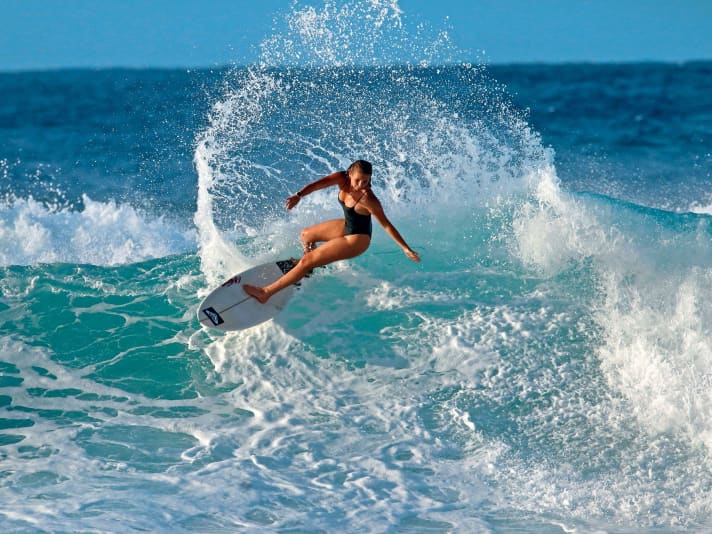
And something else is important for a successful sports career - business acumen.
Absolutely. Especially in extreme sports like windsurfing. Because the sport is not big enough for the athletes to be managed by experts. There's not enough money in windsurfing for that. So you are your own manager, negotiate with sponsors about yourself - because you are the product - at the same time you are your assistant, coach, PR man, because you write your own stories. All in one person. If you can do that, you're also prepared for later life, because then you can do everything.
Why did you manage it so well?
My family had no money. We were just getting by. So I had to manage well. This gave me a natural business sense. When I was 18, I also decided to go to business school. I learnt a lot there, but I learnt most of it during my career as a professional windsurfer, where I was able to try out and practise everything in real life. That's why I had no qualms about ending my sports career...
...to become a property agent - and very successfully.
Yes, even as a windsurfer I invested in property. I was lucky enough to be a professional in the glory days of windsurfing. We were very well paid. But I realised with my wife Amy that if I put the energy I put into windsurfing into something else, I would earn ten times as much.
You have a great family, have become a champion in your sport and are now a successful businessman. Have you just been lucky?
I don't think it was luck. I think it's an attitude. A philosophy. I'm a very positive person and I see the positive side of life. That's a very Hawaiian attitude. It also explains why Hawaiians are pretty happy people - no matter what their life situation is at the moment.
Still, it's amazing how you've made the transition from party animal Josh Stone and heartthrob to husband, father and businessman.
Honestly, a lot of it was acted. That was expected of me. Of course I had fun at parties, but I was quickly labelled a "party animal". The sponsors thought it was great and expected me to continue to fulfil this role.
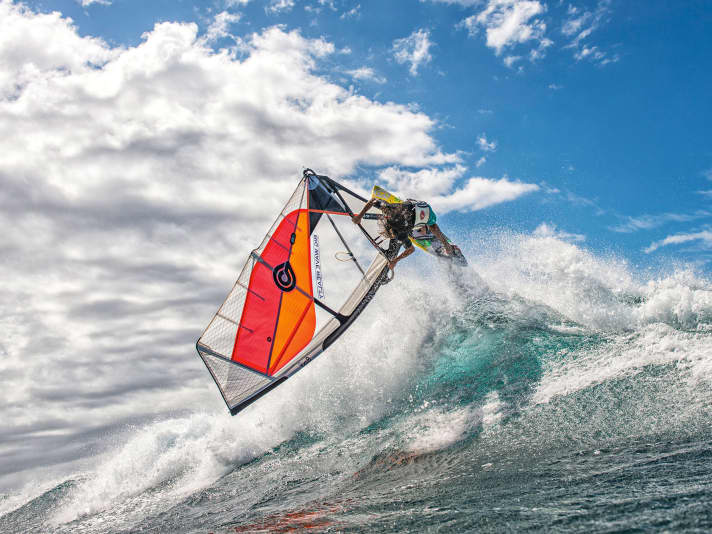
But you were more of a family man?
Above all, I have always been very much in love with my wife. That's the most important thing for a happy family. It starts with this relationship. Amy knew me, knew who I was and accepted me for who I was. She was very supportive of me and accompanied me on the tour - we were both in our early twenties. She sat on the beach, spent a lot of time in airport halls. If you're a windsurfer, you like to sit on a beach in Gran Canaria. If, on the other hand, you have no interest in windsurfing and are only there because you've fallen in love with a windsurfer, it can be pretty bad. But she got through it bravely and never lost her sense of humour. Now it's time for me to give back and we can do what she enjoys. In short, my greatest luck in life was that I found the right woman very early on in my life. I wouldn't have survived without her, I was too crazy for that.
Back then, you had a reputation for being a particularly stylish surfer. Which surfer do you particularly like today because of his style?
Brawzinho for sure. His style reminded me of Francisco Goya in his best days, but with much more power. And his development is incredible. The guy is getting better and better. Some days he's flawless. And he's got the balls for some serious action. Did you see the aerial he did in Jaws? Unbelievable. I was known for high aerials - but Brawzinho's aerial was a whole different dimension. And he managed to land in the same wave. It was amazing! He's the best windsurfer in my eyes.
Maui is increasingly becoming the island of the super-rich. You work as a real estate agent on Maui, but you yourself are a Hawaiian selling your island. Kind of a double-edged sword, isn't it?
I was still a windsurfing pro when I was already buying properties to rent out. The demand on Maui is huge and prices are exploding. You can't get a hut for less than 3000 dollars a month. And I really mean hut. That's crazy. In short, I didn't feel like I was selling the island. When I started building houses later, it was more like that, because I was building structures where there had previously only been nature. It's bitter, but the demand for housing on Maui was dramatic.
What do you think about talk show host Oprah Winfrey and Amazon boss Jeff Bezos buying huge tracts of land on Maui?
I don't think that's so bad. Because although these millionaires buy huge pieces of land, they hardly ever cultivate them. So nature is preserved. And I also feel this responsibility in my job. That's why I make sure that the land isn't built on, because as long as you don't get greedy, you can do it respectfully and well. The disadvantage of large plots of land: Normal people can't afford it, of course. The beauty of Maui is both a curse and a blessing - it's so beautiful here, no wonder all the rich people want to buy property here.
